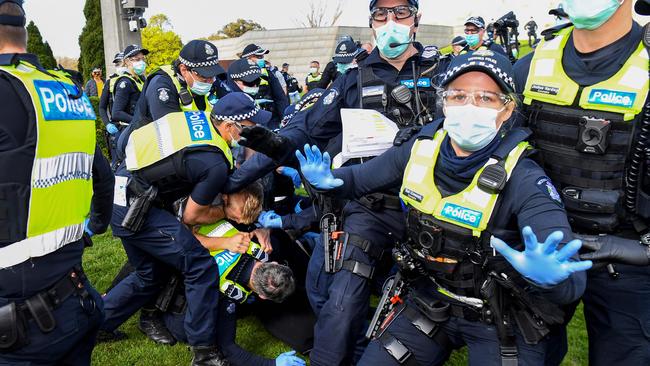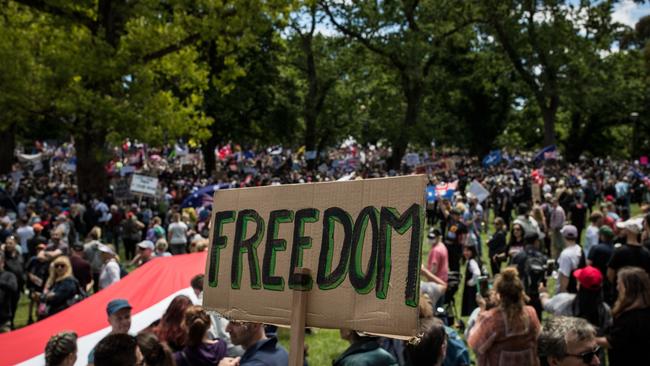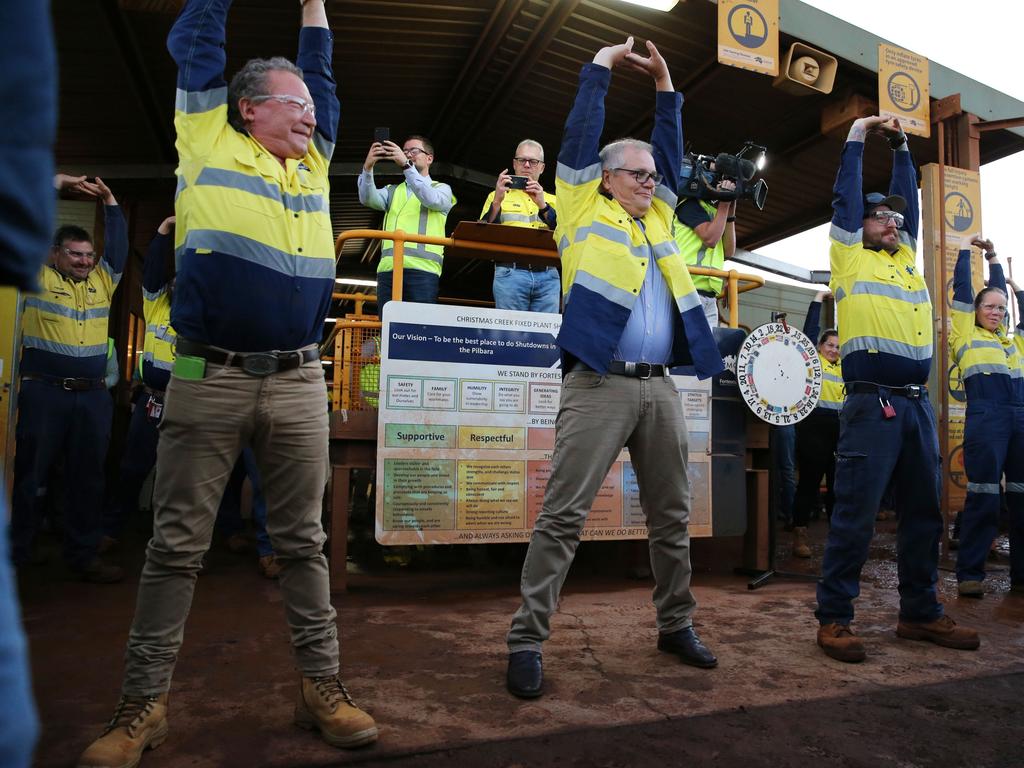Cruel Covid regulations killed my love of the law
I have a confession. As a lawyer, I am increasingly contemptuous of the law and sickened by the inhumanity imposed on the people.

I confess this as a lawyer who has always loved the law, the rule of the law, and the democratic legitimacy that underpins laws. Listening to Johnny Rotten didn’t turn the teenage me into an anarchist, but Covid has turned my adult respect for the law into contempt.
Not the virus itself, of course. The wreckers are the leaders – meaning most politicians in this country – who used disproportionate powers to manage the virus for far too long.
The early days of Covid, when we didn’t know what we were dealing with, demanded quick and tough measures. My scorn for authority grew as the vulnerable – the very old – were not protected enough while every other group bore the brunt of many restrictions that made little sense.
Some will jump in with the obvious retort to my scorn for authority. There lies the road to anarchy, they will say. I would respond that sometimes you need to throw the tea into the harbour if you want greater freedom over your life, instead of wicked, senseless meddling from unelected powers.
My first line of defence for disrespecting many of the cruel and silly Covid laws rests on one fundamental premise: the democratic legitimacy of laws was dead, buried, cremated during Covid. At the state and federal levels, the country was run by unelected bureaucrats. It took until early October this year for a politician to say the bleeding obvious. “We’re the elected officials,” said newly installed NSW Premier Dominic Perrottet when explaining why he was opening the state, despite some health officials pushing for a longer lockdown.
Further damaging the legitimacy of law, restrictions were often enforced in a ham-fisted and arbitrary way. They still are. This week, when Rebel Wilson arrived in Australia for an awards night, she was not required to isolate for 72 hours, unlike everyone else. Special treatment for someone who reads a script to make a living. Just like those footy players, and their wives and girlfriends, who could cross the closed Queensland border.
But the double-vaccinated son of a dying woman was denied entry to care for his mum.
Another week, another tragedy, just one of hundreds, thousands of private stories of pain and grief caused by political leaders chasing Covid zero.

In February, Jordan Grace left his home in Victoria for a footy contract in Western Australia. Last month, he took his own life three days before his 21st birthday.
His grieving parents were granted an exemption to travel to WA but were told they would have to stay in hotel quarantine for 14 days. “We only want to go to two places: to the morgue to identify our boy, and then to his home to pack up his things, and we would leave straight away,” Katie Grace told 6PR Mornings.
The bureaucrats denied their request.
I can’t be alone in my newly contemptuous relationship with the law, with those who make laws and with those who enforce them. I could table other exhibits from state and federal responses to Covid, straddling party lines to explain it.
Exhibits from across the world too. On Wednesday, after more than a week of ducking and weaving, British Prime Minister Boris Johnson called an inquiry into whether there was an illegal Christmas party in Downing Street last December while the rest of London was in a dark, wintry, lonely lockdown.
An inquiry? For goodness sake, just fess up Boris. Listening to Boris dodge whether there was a “party” was like hearing Bill Clinton declare he did not have “sexual relations” with his intern.
Lies are common in politics but there is a mounting cost, especially when they expose a wicked arbitrariness. It’s one thing to quarrel with the content of a law. But when laws are applied unevenly, unfairly, with elites coming off better than the rest, there are consequences. When the rule of law breaks down, expect respect for the law to tank too.
The clincher for me was the report from the Victorian Ombudsman into that state’s border restrictions. Delivered on Tuesday, this damning report lays bare why my default position is no longer one of respect for the law.
Deborah Glass appears to be a very rare bureaucrat, one who understands the importance of proportionate laws that are applied sensibly. Her conclusion is short and sharp: “If there is a next time, we cannot let this happen again.”
By “this” she means decisions by bureaucrats that were “downright unjust, even inhumane”.
Glass recounts how “the whole (border closure) scheme failed to comprehend the very real need of many people to come and go across the border for a whole range of reasons”.
“Rather than fairly considering individual circumstances and the risks associated with them, the exemptions scheme was a blunt instrument that resulted in unjust outcomes, potentially for thousands of people.”
Glass cites examples of the heartbreaking consequences of the Victorian border policy, and its implementation: “People who had travelled to visit ill or elderly relatives, or who needed to return to care for them. People unable to return to care for their animals. People who had moved for jobs or study whose circumstances had been up-ended by the pandemic, who were homeless because their homes were in Victoria. People paying double rent with no job. Pensioners paying out money they could not afford. People desperate to attend vital medical appointments, told no … all these people found themselves ineligible for an exemption.”
Glass cites one woman who was forced to threaten self-harm “to feel like I was being taken seriously”. It was, notes the report “dehumanising and humiliating”.
Another woman needed to travel to help care for her sister with an intellectual disability and terminal cancer, who was living with their elderly mother. Glass notes: “She was asked for evidence of her sister’s cancer diagnosis, treatment and life expectancy; her birth, marriage, divorce certificates and driver’s licence; and a statutory declaration from her 86-year-old mother explaining why it was difficult for her to continue looking after her daughter.”
A woman from regional Victoria needed to care for her animals. She worried about having her flock put down “because the department had asked for further information it said she did not provide”.
“I cannot fathom the cruelty of this process and their decision. Surrendering our animals has broken my heart, my spirit and my faith in our state government and the humanity of the people that make such decisions,” she told the ombudsman.
Consider the hundreds, thousands, of people with similar stories who didn’t contact the ombudsman.

Glass warns about the diminishing respect for the law. “Failing to exercise discretion fairly, not giving reasons, failing to offer a right of review – these can all damage public trust in those who make decisions and, ultimately, in government.”
A legitimately elected government does not always guarantee the legitimacy of law. There is still a point when some of us will push back against laws that are cruel.
For example, in April last year – when Victorian Premier Daniel Andrews banned two people in a loving relationship, who lived apart, from seeing each other because “that’s not care” – I would have broken the law if I lived in Victoria.
Though forced to back down, Andrews had set the tone of his lockdown. It’s not surprising that Victorian bureaucrats administrating his border scheme told a woman that she could not travel to care for her cancer-stricken disabled sister, that travelling to save a flock of animals from being put down is not “care”.
People will disagree about where to draw the line when it comes to obeying laws that are morally wrong. But to suggest there is not a line, that all laws must be obeyed, ignores the messy, complicated, magnificent history of freedom. Not just the Boston Tea Party, but when periods of later civil disobedience, be it through big public displays or smaller private steps, helped to dismantle apartheid and secure women’s suffrage and other social movements that sought greater freedom. My defence for respecting laws less after Covid is that not even laws made during a pandemic warrant our unthinking obeisance.







I have a confession. I am increasingly contemptuous of the law, and even more insolent towards those who make laws and those who enforce them. No, I’m not driving at high speed down suburban streets or hiding bodies in a barrel (it’s an Adelaide thing). I’m not hurling abuse at politicians or police. But I am pushing back more, even ignoring some laws where there is no harm to others. Yes, as Mandy Rice-Davies might point out, I would say that.